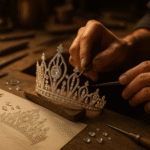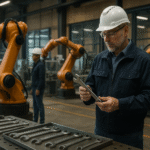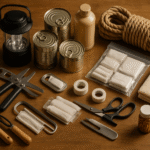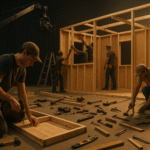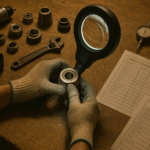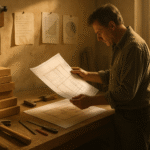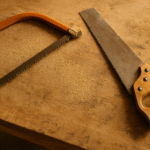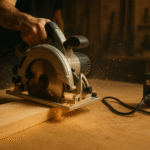Artificial intelligence is rapidly reshaping industries — and workshops are no exception.
From automated calibration to predictive maintenance, modern tools are learning to analyze, adapt, and even correct human technique.
But as AI-powered systems become more capable, a deeper question arises: is machine precision improving craftsmanship — or slowly replacing it?
Automation Meets Artistry
AI-driven tools now perform many of the adjustments once done by instinct.
Sensors monitor torque, motion, and material density, automatically fine-tuning speed and power for optimal results. These systems have evolved from simple “smart modes” into full-fledged self-optimizing ecosystems, much like those described in Inside the Smart Workshop: Connected Tools That Think for You.
This technology dramatically reduces errors and improves efficiency, but it also challenges the notion of what craftsmanship means when judgment and correction are handled by code rather than experience.
Learning From the User
Unlike traditional automation, AI tools don’t just repeat commands — they learn from patterns.
Over time, they recognize preferred working styles, pressure levels, and task sequences, using this data to predict and assist future actions.
As explored in How AI Is Reinventing the Future of Tools and Workshops, this adaptive intelligence helps users become more consistent and precise. It transforms tools into digital collaborators — capable of complementing skill rather than replacing it.
For new users, this learning curve acts as a silent mentor. For professionals, it becomes a refinement engine, capturing years of micro-adjustments and embedding them into performance.
When Efficiency Becomes Dependence
While AI makes tools more intuitive, it also risks creating a new kind of dependency.
The same systems that reduce human error can also dull traditional instincts. Overreliance on automation may limit the development of tactile awareness — that subtle understanding of vibration, resistance, and texture that defines expert craftsmanship.
It’s a concern echoed by seasoned professionals who see the rise of smart workshops as a double-edged sword — a perspective also reflected in Workshop of the Future: How AI + IoT Will Automate Your Tool Bench, where human oversight remains the critical final layer.
Preserving the Human Edge
Technology excels at precision but struggles with intention.
Craftsmanship has always been about the personal touch — the feel of a material, the rhythm of a task, and the satisfaction of mastery.
The balance, then, lies in coexistence. AI should enhance, not erase, the creative process.
Predictive diagnostics and digital control are tools for empowerment, not replacement — just as Repair, Don’t Replace: The New Ethics of Modern Craftsmanship emphasizes longevity through understanding rather than convenience.
The Future of Skill
In the next decade, the best craftsmen may not be those who resist AI, but those who use it intuitively — integrating digital insights into traditional technique.
Workshops will likely become hybrid environments where skill and software operate side by side, each amplifying the other’s strengths.
AI may automate precision, but it can’t automate passion.
The essence of craftsmanship — creativity, patience, and personal judgment — remains distinctly human.


